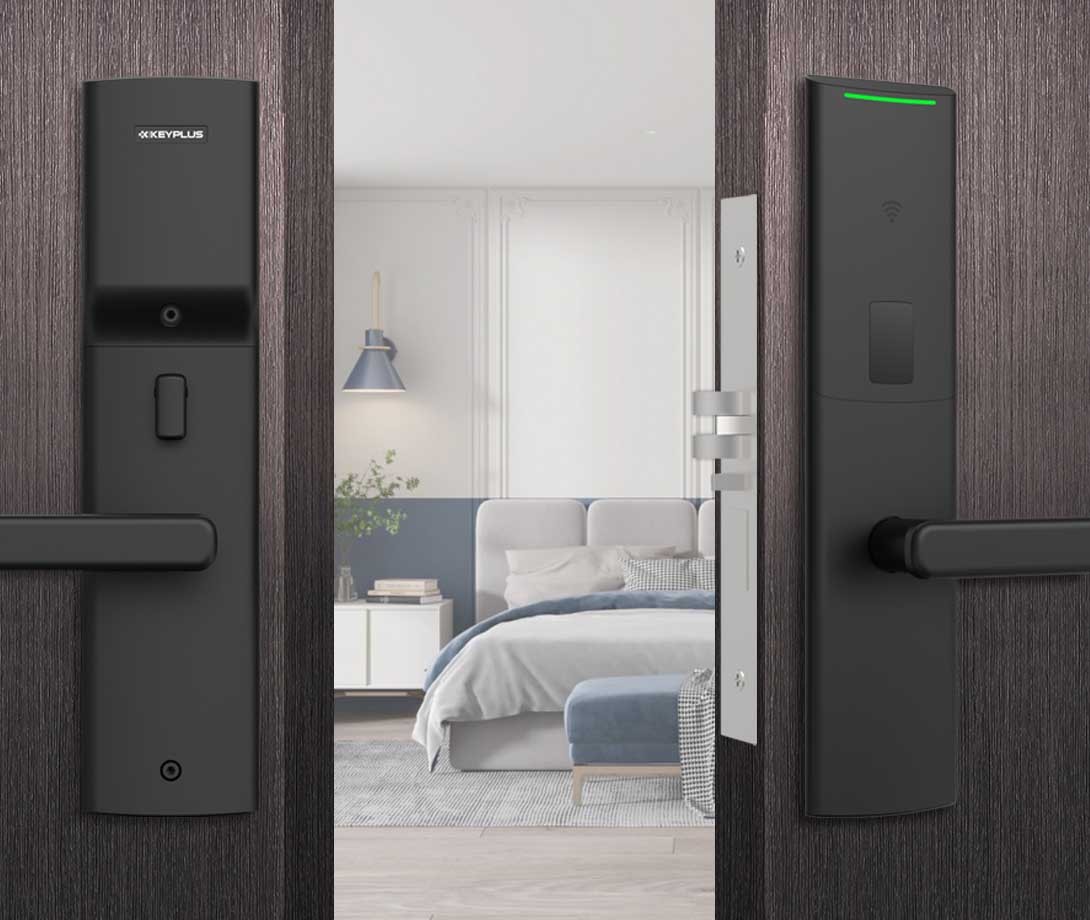When upgrading your home security, durability is just as important as convenience. If you’re deciding between a smart lock and a digital lock, you might wonder: Which one lasts longer?
The answer isn’t as simple as you might think. While both offer keyless entry, their lifespans vary based on technology, build quality, and maintenance. In this guide, we’ll compare their longevity, factors affecting durability, and tips to extend their lifespan.
1. Defining Smart Locks vs. Digital Locks
First, let’s clarify the difference between these two types of electronic locks:
Digital Locks
- Basic keyless entry (PIN code, fingerprint, RFID card)
- No internet connectivity (standalone operation)
- Examples: Keypad deadbolts, biometric door locks
Smart Locks
- Wi-Fi/Bluetooth-enabled (connects to smartphones, voice assistants)
- Remote access & automation (lock/unlock via app, geofencing)
Now, let’s compare their lifespans.
2. Average Lifespan: Smart Locks vs. Digital Locks
| Feature | Digital Locks | Smart Locks |
|---|---|---|
| Typical Lifespan | 7-10 years | 5-8 years |
| Why? | Fewer electronic components, no wireless tech | More complex circuitry, Wi-Fi/Bluetooth modules |
| Battery Life | 12-24 months (AA batteries) | 6-12 months (frequent connectivity drains power) |
| Mechanical Durability | Longer (simpler motorized bolt) | Shorter (more moving parts) |
| Software Obsolescence | Not an issue (no updates needed) | May become outdated in 3-5 years |
Key Takeaway:
- Digital locks generally last longer because they have fewer electronic components and no wireless connectivity.
- Smart locks tend to wear out faster due to complex hardware, software updates, and battery drain.
3. Why Smart Locks Don’t Last as Long
1. More Electronic Components = More Failure Points
Smart locks contain:
- Wi-Fi/Bluetooth chips (can overheat or fail)
- Advanced circuit boards (prone to power surges)
- Mobile app dependencies (if the app stops being supported, the lock becomes obsolete)
2. Frequent Firmware Updates
- Manufacturers may stop supporting older models, leaving them vulnerable to hacking or compatibility issues.
- Example: A 2018 smart lock might lose app support by 2025.
3. Higher Battery Drain
- Constant Bluetooth/Wi-Fi signals drain batteries faster.
- Some models require monthly charging, increasing wear on battery compartments.
4. Physical Wear from Automation
- Auto-lock/unlock features mean the motor engages more often, wearing out faster than manual digital locks.
4. Why Digital Locks Outlast Smart Locks
1. Simpler Technology
- No internet connectivity = fewer components that can fail.
- Basic keypad/fingerprint models have been refined over decades.
2. No Software Obsolescence
- Since they don’t rely on apps, they won’t stop working due to outdated firmware.
3. Longer Battery Life
- A standard 4-AA battery digital lock can last 1-2 years vs. 6 months for some smart locks.
4. Tougher Build for Outdoor Use
- Many digital locks are designed for harsh weather (e.g., commercial keypad locks).
5. Factors That Affect Both Lock Types’ Lifespans
Even though digital locks last longer on average, maintenance and usage play a huge role.
1. Build Quality
- Cheap $100 smart locks may fail in 3-4 years.
- Premium $300+ models can last 8+ years.
2. Battery Maintenance
- Corroded batteries can destroy electronic contacts.
- Solution: Use lithium batteries (last longer in extreme temps).
3. Weather Exposure
- Extreme cold can drain batteries.
- Humidity can damage circuit boards.
- Fix: Choose weatherproof models (IP65 rating or higher).
4. Usage Frequency
- A front door lock used 20x/day will wear out faster than a garage door lock used 2x/day.
6. How to Extend Your Lock’s Lifespan
For Smart Locks:
Update firmware regularly (security patches improve longevity)
Use rechargeable batteries (reduce corrosion risk)
Install a weather shield (protects from rain/sun damage)
Disable unnecessary features (e.g., constant activity logs)
For Digital Locks:
Clean the keypad/fingerprint scanner monthly
Replace batteries before they die (prevents acid leaks)
Lubricate the bolt annually (use graphite powder, not WD-40)
7. When Should You Replace Your Lock?
Watch for these warning signs:
⚠ Unresponsive buttons (keypad fading)
⚠ Frequent battery changes (power leakage)
⚠ Grinding noises (motor wearing out)
⚠ Software no longer supported (smart locks only)
8. Final Verdict: Which Should You Choose?
Pick a Digital Lock If…
You want maximum longevity (7-10+ years)
You don’t need remote access
You prefer low-maintenance security
Pick a Smart Lock If…
You must have app control & automation
You’re okay with replacing it sooner (5-8 years)
You’ll maintain it properly (updates, battery care)
Hybrid Option?
Some locks offer both keypad + smart features, balancing convenience and durability.
Conclusion
Digital locks last longer (7-10 years) because they have simpler technology, while smart locks (5-8 years) wear out faster due to complex electronics and software dependencies.
If longevity is your top priority, a high-quality digital lock is the better choice. But if you value smart features and don’t mind replacing it sooner, a well-built smart lock can still provide years of reliable service.
Which do you prefer—longer lifespan or high-tech convenience? Let us know in the comments!
Post time: May-13-2025


